


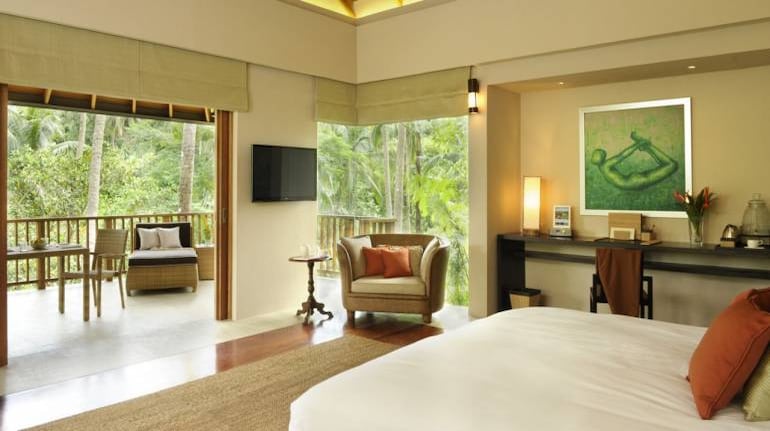
The very idea of luxury will change: Luxury brands have spent decades creating design, aspiration, and high-quality experiences for consumers. The coronavirus pandemic changed it all in a few months. Consumers will trust those brands that have better mechanisms to adhere to health and safety guidelines, with a strong orientation towards sustainability.
The need for pursuing ‘Responsible Luxury’: Concern for Planet Earth has dawned on everyone. At ITC, our belief in ‘Responsible Luxury’ — luxury without compromising the earth or the idea of luxury, has kept us future-ready even in the face of such a disturbing pandemic.
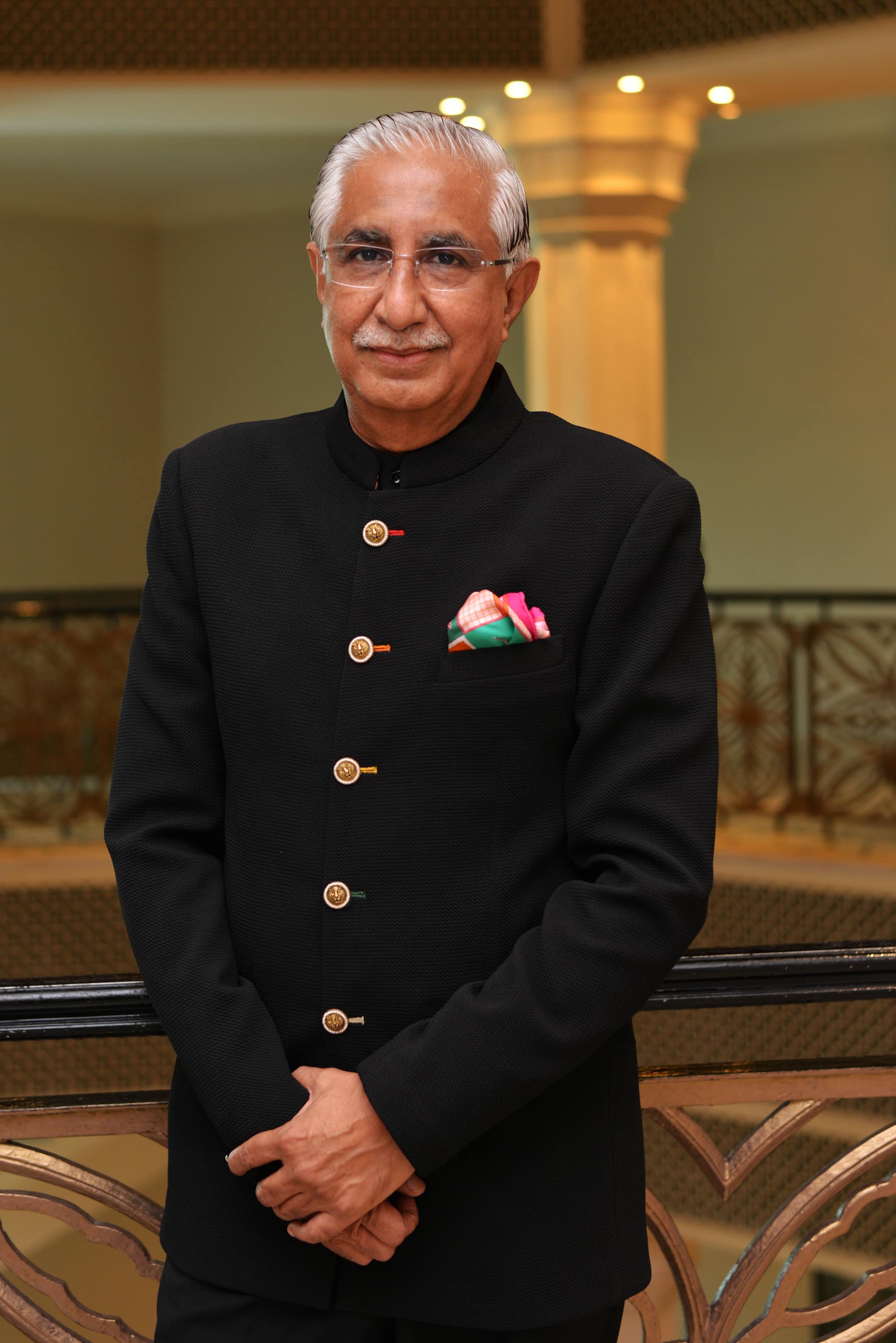 Nakul Anand, Executive Director, ITC Ltd
Nakul Anand, Executive Director, ITC Ltd
Beginning at the design stage, each ITC Hotel adheres to the highest global and national green building standards to ensure that energy, water and solid waste efficiencies are maximised. We are the largest chain of hotels in the world with a maximum number of LEED Platinum Certified properties (USGBC). ITC Hotels launched Sunya Aqua or zero kilometre water in glass bottles across the chain over a decade back. At ITC Maurya, we offer clean air at par or better than WHO standards, which permeate public areas too.
The rise of sanitised travel: Across the industry, I see tonnes of things happening — disinfecting becoming the new gatekeeper, technology, thermal screening, ozonisers and UV screenings… Cleanliness has become the new amenity.
Hotels that used to say ‘location, location, location,’ now have to say ‘cleanliness’. ITC Hotels ‘WeAssure’ programme of an upgraded hygiene and safety protocol will engender a sense of calm and reassurance among guests, without changing the human touch at the core of our philosophy.
Privacy will be the key to luxury travel: I call this the ‘Rise of Distance.’ It will trickle down to food and beverage services.
Less is more. For a short while, buffets have had their last supper. The big fat Indian wedding has gone on a diet.
People are going back to eating organic food, food that boosts your immunity is an all-natural and farm-to-table. They are unlikely to be wasteful in any manner. Somebody rightly said, “Let food be your medicine or medicine will be your food.”
Love for the local: With anxiety still looming large, most travel will be within the country. The latest addition to our inventory, Welcomhotel Shimla has registered great occupancy, which indicates the need to travel and preference for motorable and memorable destinations.
Design and layout: In the long term — and I find this very interesting— we would be asking one question: How are we going to redefine our buildings? The way hotels are going to be built is going to change. It was Winston Churchill who said that we define our building and then the buildings define us. There will be a lot more emphasis on acoustics, bacteria-resistant material and anti-bacterial switches. The layouts will make space for safe distancing and technology will have a huge role to play in the design.
At-home dining experiences from luxury hotels will define F&B: Patrons now want the luxury hotel dining experience within the comfort of their homes. Responding to this need, ITC Hotels have empowered guests with various options to choose from.
From the home delivery of ITC Hotel's signature cuisine repertoire, the Gourmet Couch, to the much-in-demand comfort food of Biryani & Pulao, the home delivery initiative (through Swiggy and Zomato) rests on the ‘WeAssure’ protocol that integrates safety in the service design.
Anuraag Bhatnagar, Chief Operating Officer, The Leela Palaces, Hotels and ResortsThe evolution of luxury: Luxury is perhaps one of the most nuanced concepts that exist; it is a perfect blend of quality, uniqueness, and comfort. It tends to be understated and is most often experiential. Over the last couple of years, there has been a fundamental shift in luxury consumer values…a move towards experiences that prioritise happiness and well-being, a shift from owning to being. The pandemic has reinforced the relevance of this shift.
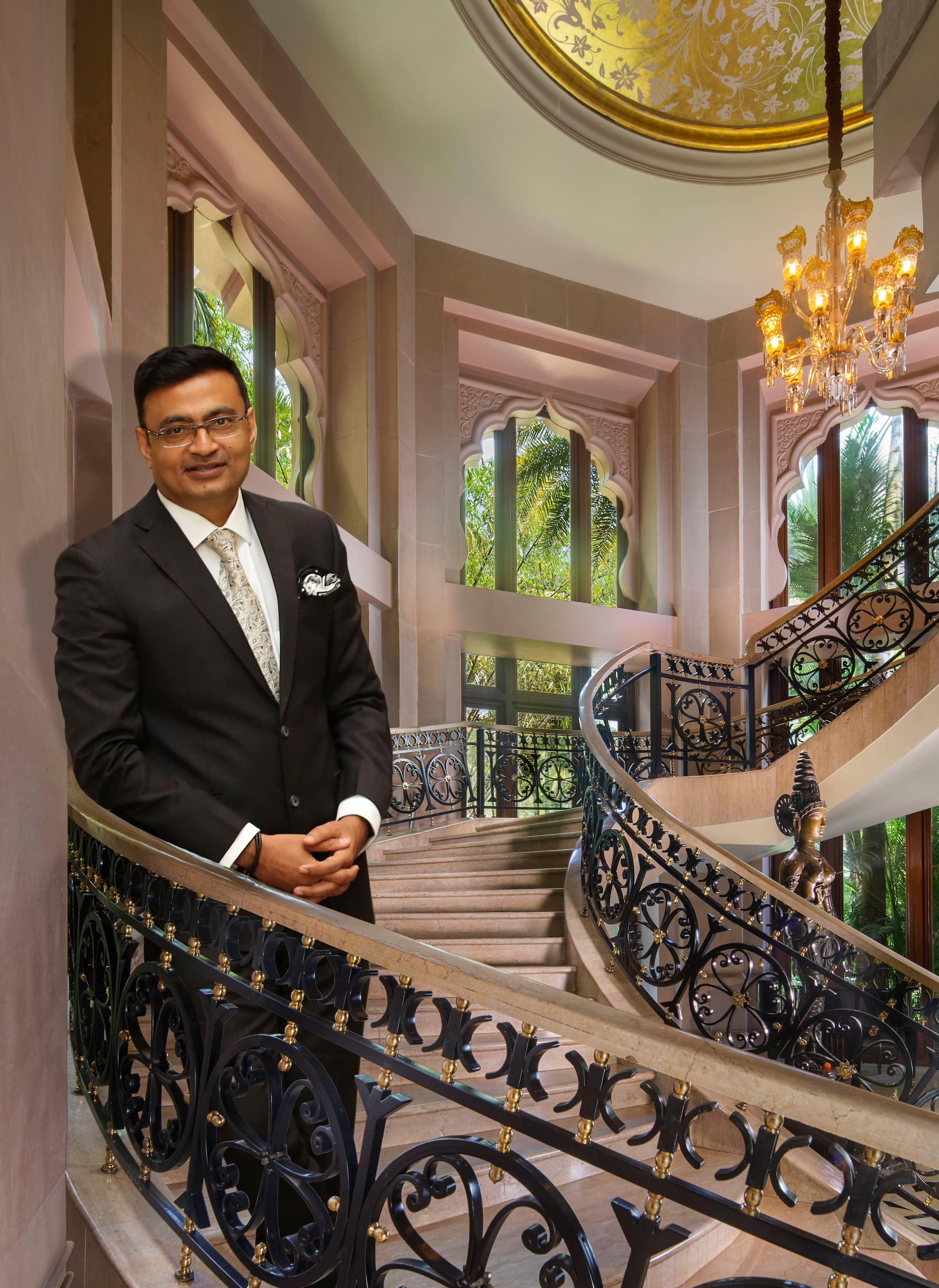 Anuraag Bhatnagar, Chief Operating Officer, The Leela Palaces, Hotels and Resorts
Anuraag Bhatnagar, Chief Operating Officer, The Leela Palaces, Hotels and Resorts
The learnings from 2020: Safety and hygiene occupy the centre of all things, and that aspect is here to stay. Working from Home is not only possible but can also be very productive. Technology is an enabler and brings the world closer. Your health and the health of your loved ones should be above everything else. The need to be more mindful of our actions and the impact they have on others, and to act responsibly towards your communities.
The transformed hotel experience: Humanity is at the core of hospitality. While the new Leela experience, as we embrace the ‘new normal’, may look different, it is thoughtfully curated so guests can continue to feel as welcome and comfortable as they did before.
Experiences rather than services will hold the key.
Having had time to reflect, people will value authenticity and meaningful experiences. Companies that will figure out how to offer experiences instead of services, will be leading the way.
To be relevant today, every luxury brand must constantly look for refreshing ways to contextualise the old within the new. Luxury brands need to bring the story of their heritage, craft and legacy within the cultural context of today to appeal to the new generation of customers.
Surge in demand for resort destinations: Hotels and resorts that naturally lend themselves to social-distancing and provide expansive settings, such as private pools and lawns, will see a surge of interest. So also will private accommodations, such as larger suites, villas and residences, where people can gather with family and friends while social distancing from others.
The emotional need to travel: People have an emotional need to travel with people they know and trust. Personal space has become more important than ever before, and hoteliers must determine how to give travellers personal spaces they feel they can control. At The Leela’s portfolio of eight distinctive palaces, hotels and resorts, we provide for all this.
The beginning of a new era in hospitality: When life changes so dramatically and at breakneck speed, we know for sure that a new era has begun. We know that the “normal” we return to will not be the “normal” we knew. And that the trends and behaviours that were predicted at the start of the decade are no more applicable.
For instance, good sanitation practices will no longer be just ‘nice-to’-have in a post-COVID world. Travellers will expect higher standards to ensure their wellbeing, and digital tools will enable and expand existing ‘no-touch’ options. At The Leela, we launched SURAKSHA in partnership with Bureau Veritas India, which builds on the group’s existing rigorous cleaning protocols.
Mobile-first technologies such as contactless payments have been in the market for a few years, with limited adoption. Recent behaviour signal a spike in adoption as customers reconsider who and what they come into physical contact with. Mobile usage will increase throughout the travel journey, from passports and boarding passes to keyless hotel entry and digital check-out at hotels.
Patanjali Keswani, Chairman & Managing Director, Lemon Tree Hotels Ltd.Hotels are likely to be more customer-friendly: The travel and hospitality industry across the world has been among the most severely impacted sectors, with the fear of the virus minimizing travel – especially for business. Uncompromising hygiene is then, the primary trend emerging in the sector. To illustrate, Lemon Tree has developed a sanitization program (in partnership with the US-based global leader in hygiene, Diversey) called Rest Assure, under which we have set up multiple hygiene practices.
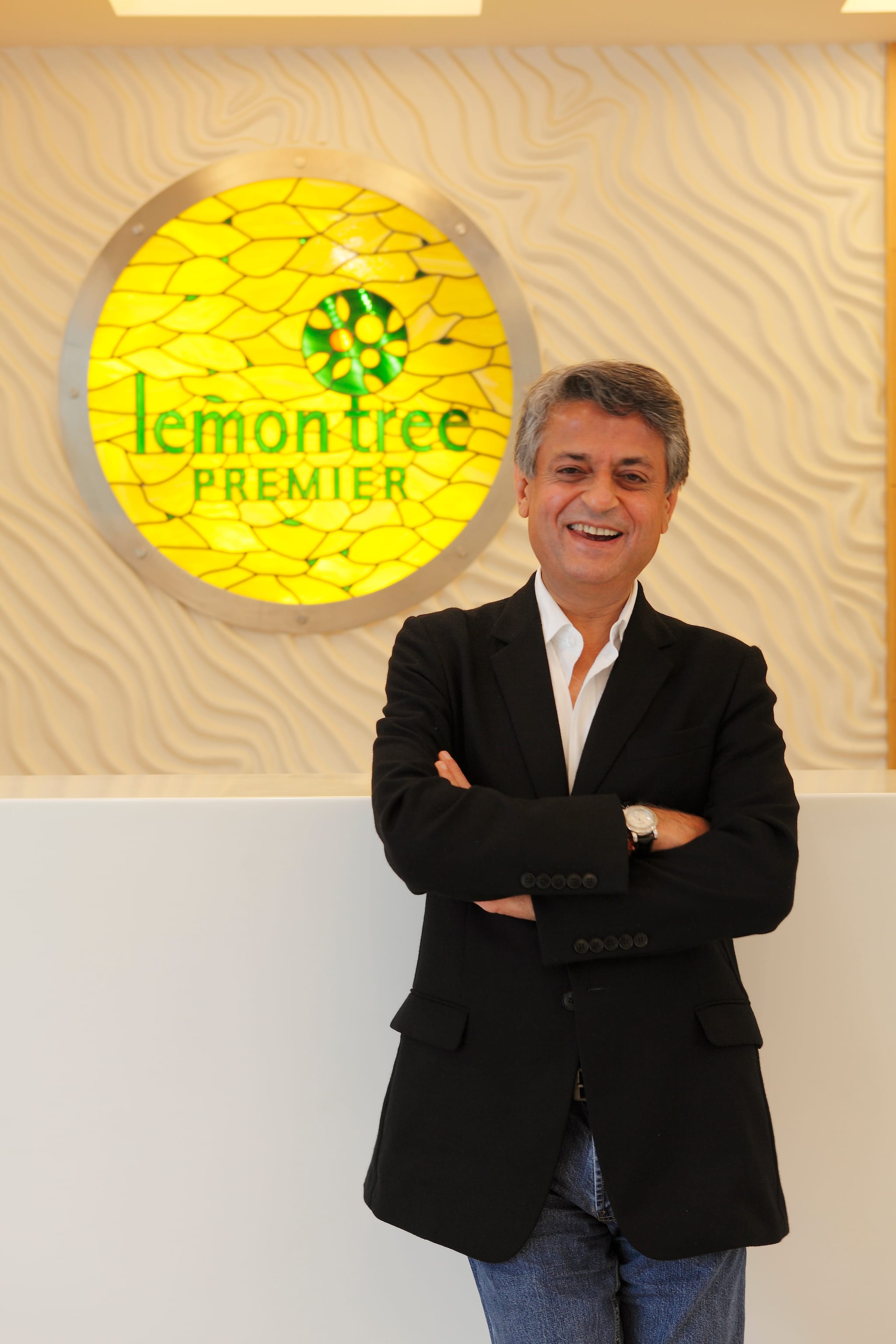 Patanjali Keswani, Chairman & Managing Director, Lemon Tree Hotels Ltd.
Patanjali Keswani, Chairman & Managing Director, Lemon Tree Hotels Ltd.
An emerging trend is dynamic booking policies and hotel offers, a necessity in an environment of the uncertainty of the pandemic coming in repeated waves, as well as an unclear timeline for the immunization programme. Hotel companies have redefined their offers to make them consumer-friendly i.e. value-for-money pricing, easy-to-book and flexibility regarding amendments and cancellations.
Emergence of new segments: We have seen new segments emerge in these past 11 months, including hotels being taken up as quarantine centres by the government; partnerships with hospital chains to provide hotels as centres for asymptomatic/mild symptom patients under the hospital’s care (monitored by them 24x7); public sector organizations’ project requirements; transit business travel requirements from small and medium enterprises; Work From Hotel/day use requirements of residents, who need a private space with a suitable working environment; and stay-cations for residents in a city looking for a break in the city itself.
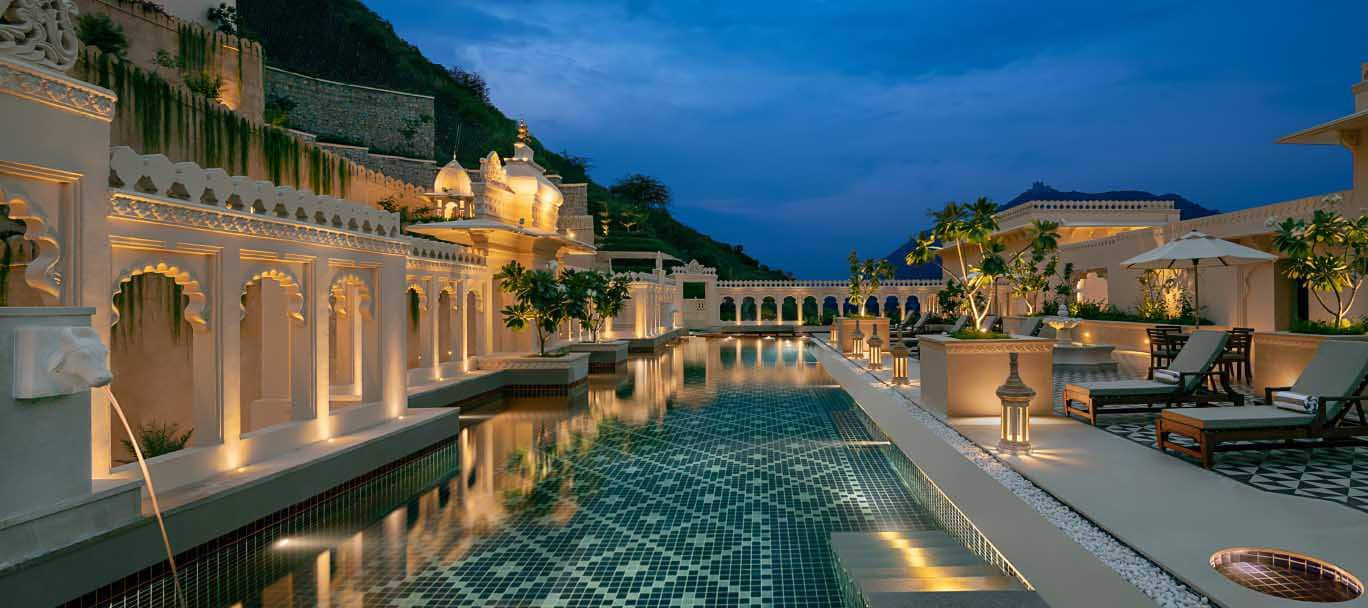 Aurika hotels and resorts, Lemon Tree's upscale brand
Aurika hotels and resorts, Lemon Tree's upscale brand
Leisure travel brings in the dosh: We expect corporate travel, the mainstay of business hotels, to rebuild slowly over the next 12-18 months. On the leisure front, people go on stay-cations in the same city/outskirts or travel to drivable destinations. To serve this need, we have co-developed a concept with Evo India called #TrippinWithLemonTree that maps out short-and-long driving routes across India, with stopovers where guests can travel in the safety of their car and then stay with Lemon Tree in a secure and sanitized environment.
Kapil Chopra, Founder, The Postcard HotelPeople are seeing more value in small things: True luxury encapsulates adding value to your overall wellbeing, experiencing authenticity, spending quality time with your loved ones, internalising and growing as individuals and, of course, creating meaningful memories.
More people are starting to value the smaller things in life, the little discoveries, the things that matter the most.
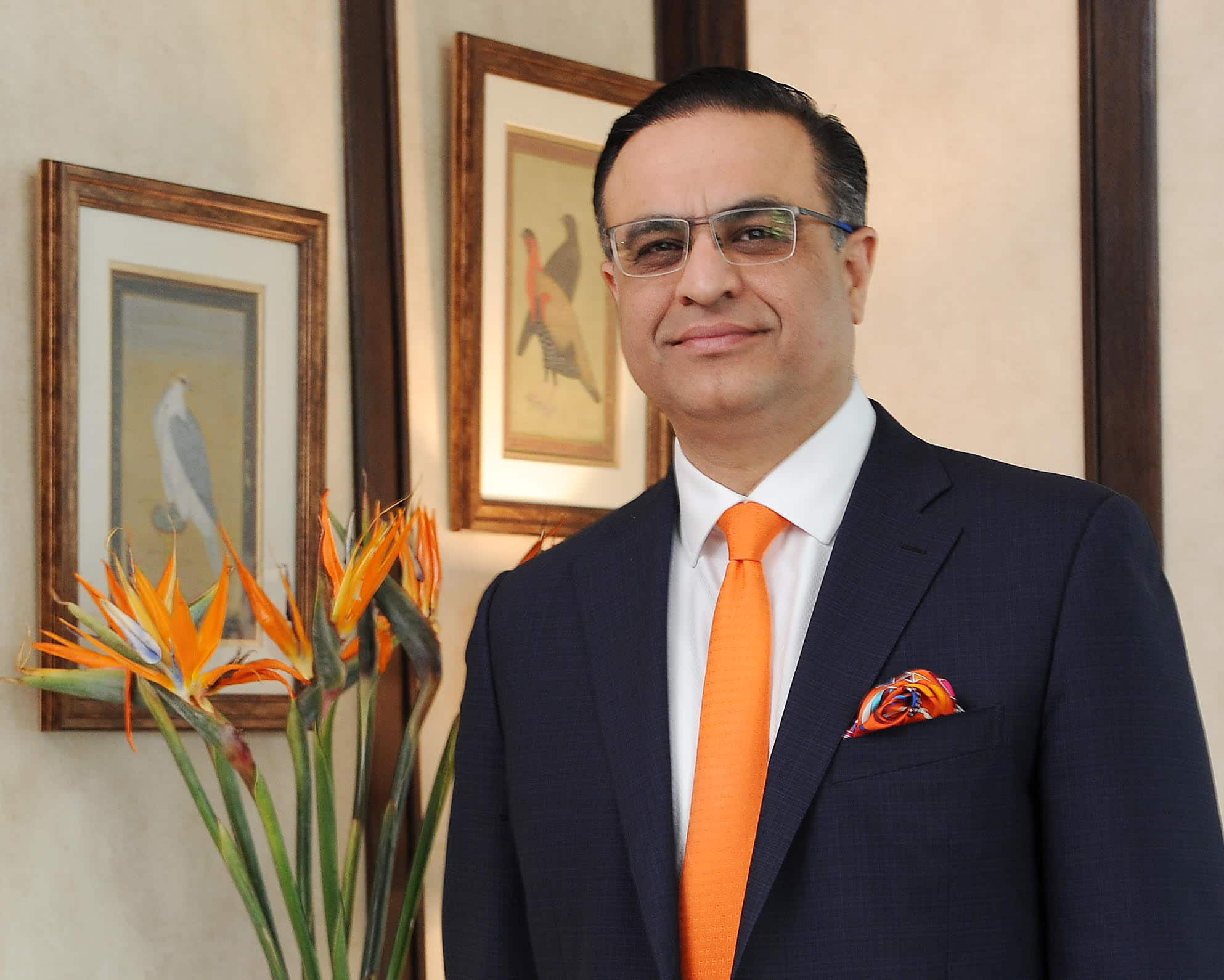 Kapil Chopra, Founder, The Postcard Hotel
Kapil Chopra, Founder, The Postcard Hotel
Exploration of hidden domestic destinations: People have started to look inwards, at unique destinations across the country, and are discovering offbeat places that stimulate balance, introspection and adventure. There’s new potential in the industry to service the domestic market and a lot of luxury brands are recognising that.
At The Postcard, we saw that there is so much that India has to offer, with its cultural and culinary diversity — the cuisine in our country practically changes every 100 km! A current trend that I believe will continue is the demand for intimate luxury. Right from the beginning, we believed that true luxury is found in small, intimate hotels, where each guest’s experience can be custom, unique and memorable.
We always built for India first, intending to create ultra-immersive experiences in small hotels. With a 60% higher revenue when compared with the previous financial year, our model has been validated in one on the most trying years for the industry as people move away from larger inventory hotels. This year, we have signed 12 new hotels to add to our portfolio.
More emphasis on wellness: The current times have made people highly conscious of their physical and mental wellbeing. Adequate sleep, clean eating, general fitness, and mental and emotional peace have become an essential part of our lifestyle. Even when one is travelling, wellness will remain a key part of the journey.
Going beyond random bucket lists: Rather than ticking things off a random bucket list, travellers’ will weigh the experiences on the value they add to their journeys. For some, it may be being one with nature, for others, it may be exploring quaint neighbourhoods and interacting with the local community, and for some, it may just be a quiet interaction with a destination that propels peace within themselves.
I believe that travel, hotels as well as dining will become a journey of self-exploration. People have started, and will continue to take longer holidays, as opposed to multiple short getaways.
Large hotels that have identical offerings are going out of vogue: This is again validated in our small hotels, where we saw substantial growth in demand and revenue.
At The Postcard, we have valued local businesses and sustainable practices, and carefully select artisanal labels with the finest products to offer at our hotels. The pandemic made people realise that there is a range of exceptional consumer products available within India.
Contemporary home-grown labels that follow ethical, authentic practices are being recognised and adopted. Travellers understand legitimacy and sincerity. It’s not about how big the hotel is or how expensive the restaurant is. It’s about the quality and genuineness of the food served and the unique offering that drives a customer in.
Whether it’s culinary — like the local poee in Goa and traditional recipes sourced from local Goans; an experience, such as learning to surf with the locals or our sustainable approach, our guests acknowledge and appreciate authenticity.
Devendra Parulekar, Founder, SaffronStaysBack to nature: The fall-out of the pandemic is that people are running away from public spaces. They’d rather be amidst forest, lakes, stunning backdrops, sprawling lawns, pools, and more importantly, people they know. What a blessing it is to not have buffet breakfast in a hotel lobby in today’s times!
Then again, it is about the certainty of experience. You don’t have to worry about the AC not working, meals not arriving on time, an unclean pool. You can be sure there are no last-minute glitches.
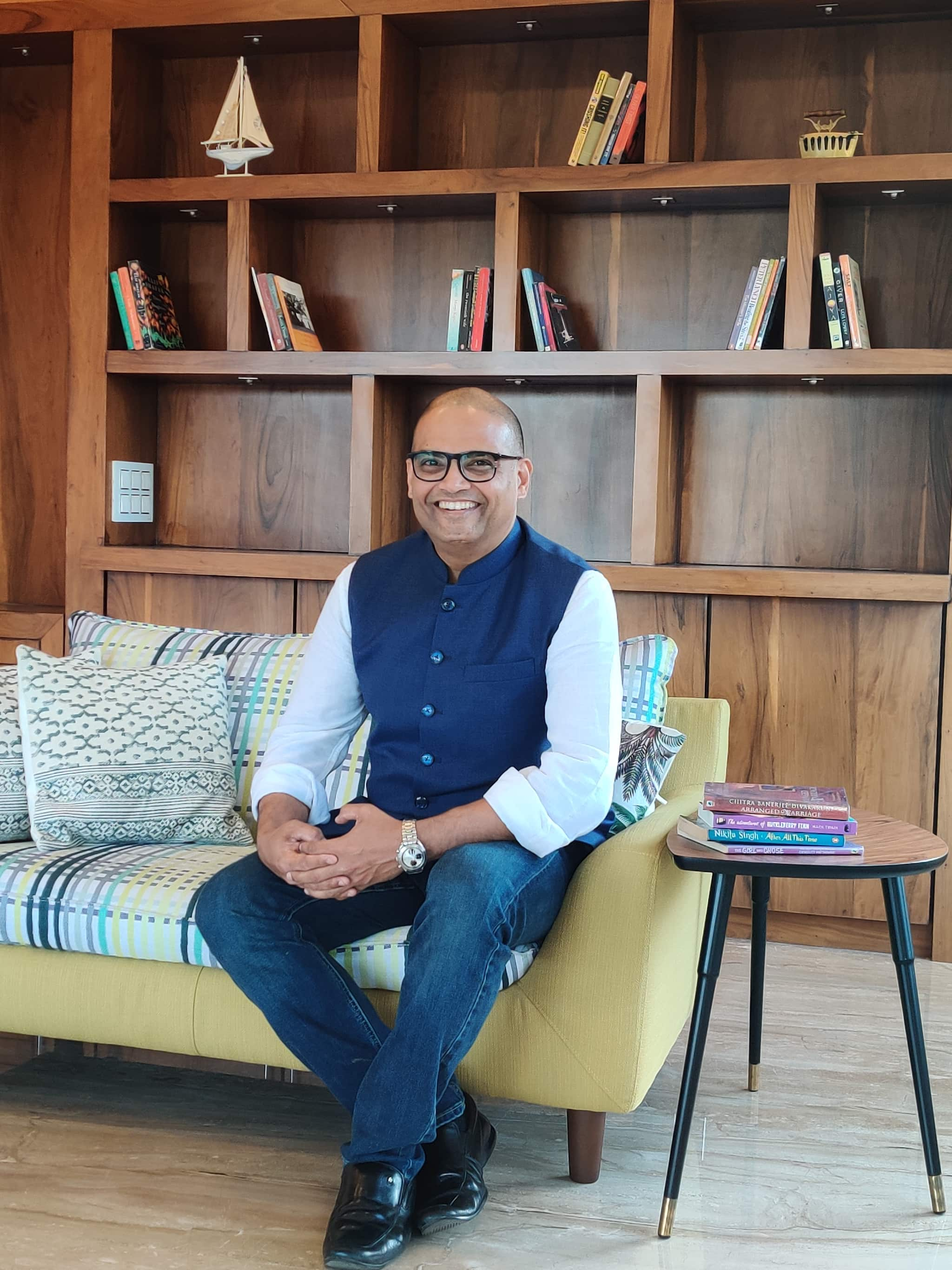 Devendra Parulekar, Founder, SaffronStays
Devendra Parulekar, Founder, SaffronStays
The rise of private villas: People will drift away from hotels to private villas. There is going to be an explosion of supply and demand. Earlier, homeowners wanted to reserve their precious homes for their annual/bi-annual visits. However, they’ve realised the importance of monetising these beautiful assets.
On the demand side, once, people would choose 5-star hotels owing to the certainty offered by them. Only the adventurous traveller would opt for villas/homestays. But the audience for the segment has increased. A brand like ours bridges the gap between a 5-star by offering similar or even better services, and a homestay by offering individualistic, authentic experiences (all for yourself).
Travel will become more individualistic: No crowd is a new luxury. Group travel has been largely impacted due to the pandemic. This stands true for celebrations, too, as people opt for more intimate celebrations. They are on the lookout for venues that will make up for the smaller guest list — untouched locations, natural set-ups, those warm fuzzy feels.
Similarly, corporates looking for quieter destinations to host strategic meet-ups, smaller group getaways, and treating their top management to a well-deserved staycation also find our villas just right.
Deepa Harris, CEO & Founder, Brands We Love (represents global luxury hotel brands such as Soneva and Aman)The inclusion of purpose: For me, 2020 has reinforced what, over the years, was becoming important for luxury consumers. The inclusion of purpose in the overall mix has never been more relevant. Consumer consciousness kicks in each time one consumes or pays for luxury especially now. Hence, luxury brands need to address this shift in mindset.
Any luxury product without its full sustainability narrative is not half as exciting anymore. Evolved brands will have to redefine their end-to-end product lifecycle with more responsibility and transparency. The constant will be quality, design and continuous innovation as prerequisites and are critical pillars for building brand reputation and desire.
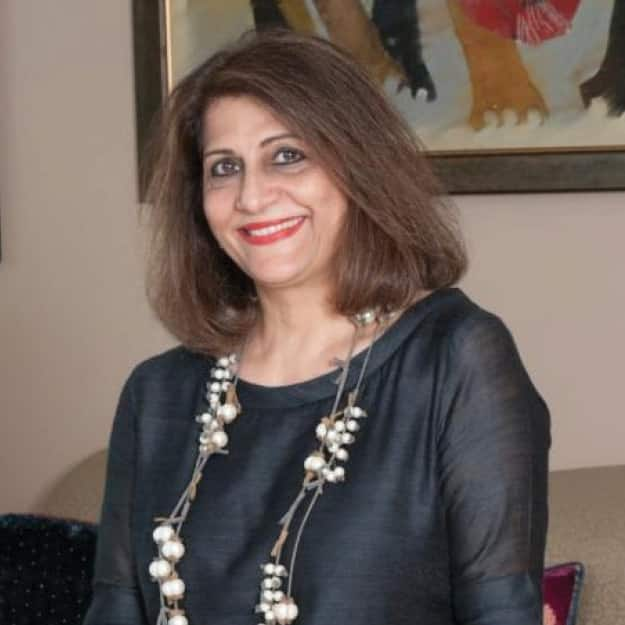 Deepa Harris, CEO & Founder, Brands We Love (represents global luxury hotel brands such as Soneva and Aman)
Deepa Harris, CEO & Founder, Brands We Love (represents global luxury hotel brands such as Soneva and Aman)
The dynamics of demand and pricing: Uncertainty around travel has changed business models. The fear of contagion has impacted air travel, cruises, and meetings & conference, which will take longer to recover. Domestic travel, private jets and villa stays, and driving holidays will continue to hold the fort in the short-to-medium term.
Re-imagining the value proposition: The business model of luxury hospitality will be reimagined in many ways and digital adoption will become more holistic, leveraging the power and control in the hands of the consumer. Hotels will need to establish a more personalised and experiential online presence and user experience. Many brands will have to broad-base their audience and markets.
Luxury hoteliers will have to give way more reasons for people to buy into luxury, whether by building invaluable bonds and memories via rare experiences or building assets for future generations via residences.
The pandemic has given people the luxury of time to follow their passion. They have surrounded themselves with their ultimate passion points at home, creating the concept of each man’s castle, thus raising the expectation bar when it comes to luxury hospitality. Hotels will have to provide contactless and controlled service without compromising on genuine warmth.
Luxury will have to be more inclusive and empathic: The shift is more intangible. Just like people want to hold governments responsible for the management of the pandemic, luxury companies that appeared to be inclusive and empathetic have gained brand strength.
Consumers will protect their database and only share it with companies they trust, and brands will be custodians of it. They will have more appreciation for the localisation of luxury and seamless delivery.
Amruda Nair, Director, Araiya Hotels & ResortsLuxury is about time: Luxury to me has always the ability to control what I do with my time. The pandemic has given people a chance to analyse what they truly want to do with their time.
Professionally, it has been heartening to see how much the ability to travel means to people. While I believe we are not in the recovery phase yet, the potential of the domestic market in India and the success of hotel brands who have been able to build trust and transparency bodes well for the near future.
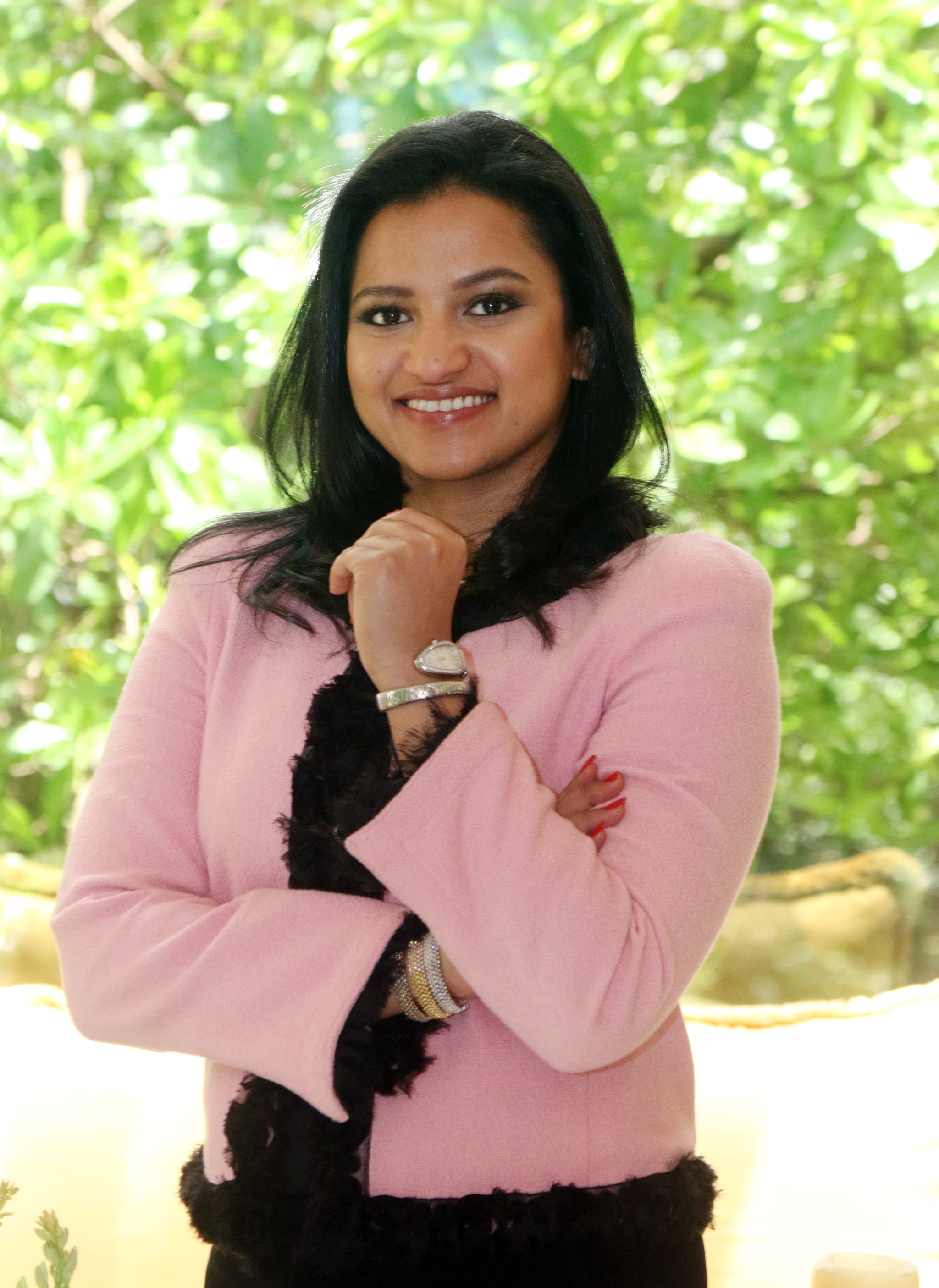 Amruda Nair, Director, Araiya Hotels & Resorts
Amruda Nair, Director, Araiya Hotels & Resorts
Hospitality brands will up their customer-engagement game: The way hospitality brands engage with guests will change dramatically for the better. At Araiya Hotels, we are focussed on making all our systems cloud-based so that we can leverage technology and data to make our processes contact-less, services seamless and experiences more personalised. These changes allow us to delegate administrative tasks to technology, freeing up our teams to give our guests a more meaningful experience.
Consumers are opting for direct engagement with hotels: At our resort in Araiya Palampur, booking trends have changed over the last quarter, with over 50% of the bookings coming directly through the brand’s reservation channels. Guests are researching a lot more before making their decisions and want to communicate with the hotel directly. There is more demand for premium category rooms, with multiple bedrooms and larger living spaces.
Luxury travellers are making purchase decisions based on reliability and responsiveness: As opposed to the price! More value is being given to nature. At our mountain resort overlooking Dhauladhar Range, there is more interest in outdoor spaces — if not a trek or biking, then bird watching and yoga. The shift is towards the journey of self-discovery and wellbeing.
Manvendra Singh Shekhawat, Managing Director, MRS GroupA sharp focus on local communities: Space and time, authenticity, trust and thoughtfulness are attributes of luxury to me. COVID-19 has taken scenes out a sci-fi movie and painted a very real picture of doomsday. It has made us rethink luxury and travel.
The question surrounding the impact travel will leave on the overall environmental and social ecosystem of a region will emerge at the forefront. Brands that are genuinely working to be more inclusive and leaving things better than they found them in their region will benefit.
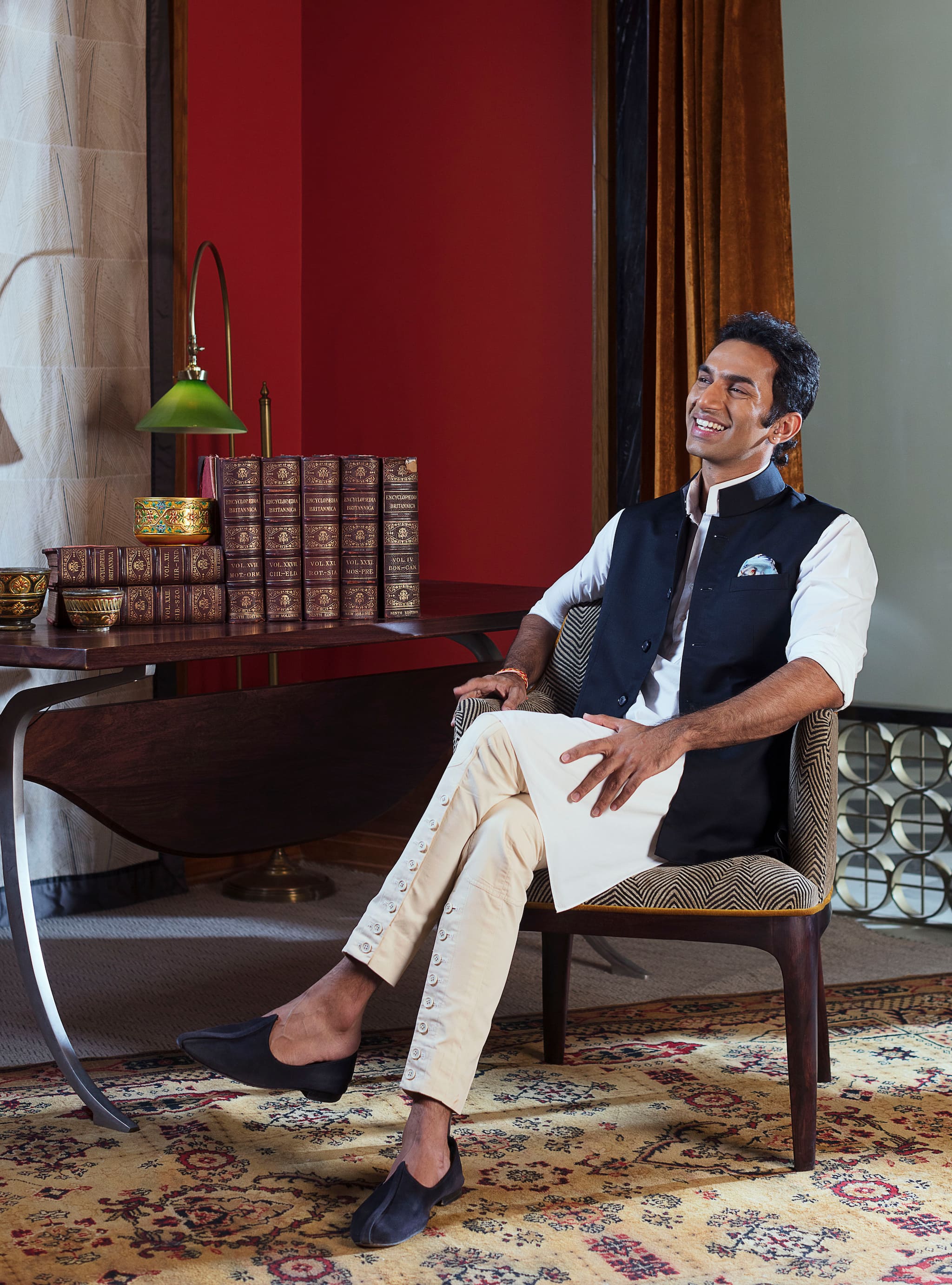 Manvendra Singh Shekhawat, Managing Director, MRS Group
Manvendra Singh Shekhawat, Managing Director, MRS Group
Increased engagement and co-operation with local communities is a natural outcome of any crises. This would mean revitalising and strengthening of hyper-local supply chains, like food and labour; pooling in of community resources for common goals such as medical care; and destination promotions and safety. The foundations formed in these times would have a long-term positive cascading impact on the overall local ecosystems.
Global collaborations: We’ll see greater global collaborations in seeking and sharing information on people’s health. Health passport and profiling of tourists will change how consumers travel and will have cascading behavioural impacts.
Agility over scale: Cities and countries that work with the private sector in proactively responding to changing circumstantial realities, leverage everything beautiful about them and their people, and use technology to communicate that precisely to the world, are bound to benefit.
The emergence of immersive experiences: Travellers will seek immersive, deeply engaging and transformative experiences. It will be the decade of the personal over the monumental. Infinite curiosity, the quest for exploration, need for connection and cooperation, is what makes us all human. Given new circumstantial realities, the ‘hows’ may change, but people will travel more than ever before.
Manu Rishi Guptha, CEO of Niraamaya RetreatsThe evolution of business travel: Business travel stands disrupted forever. People have found effective ways to not indulge in non-essential travel. Companies have found new virtues in the fact that businesses, which are agnostic of geography and travel, can be conducted equally efficiently with employees sitting at home. The savings on all non-essential travel and expenses directly gets added to your bottom line.
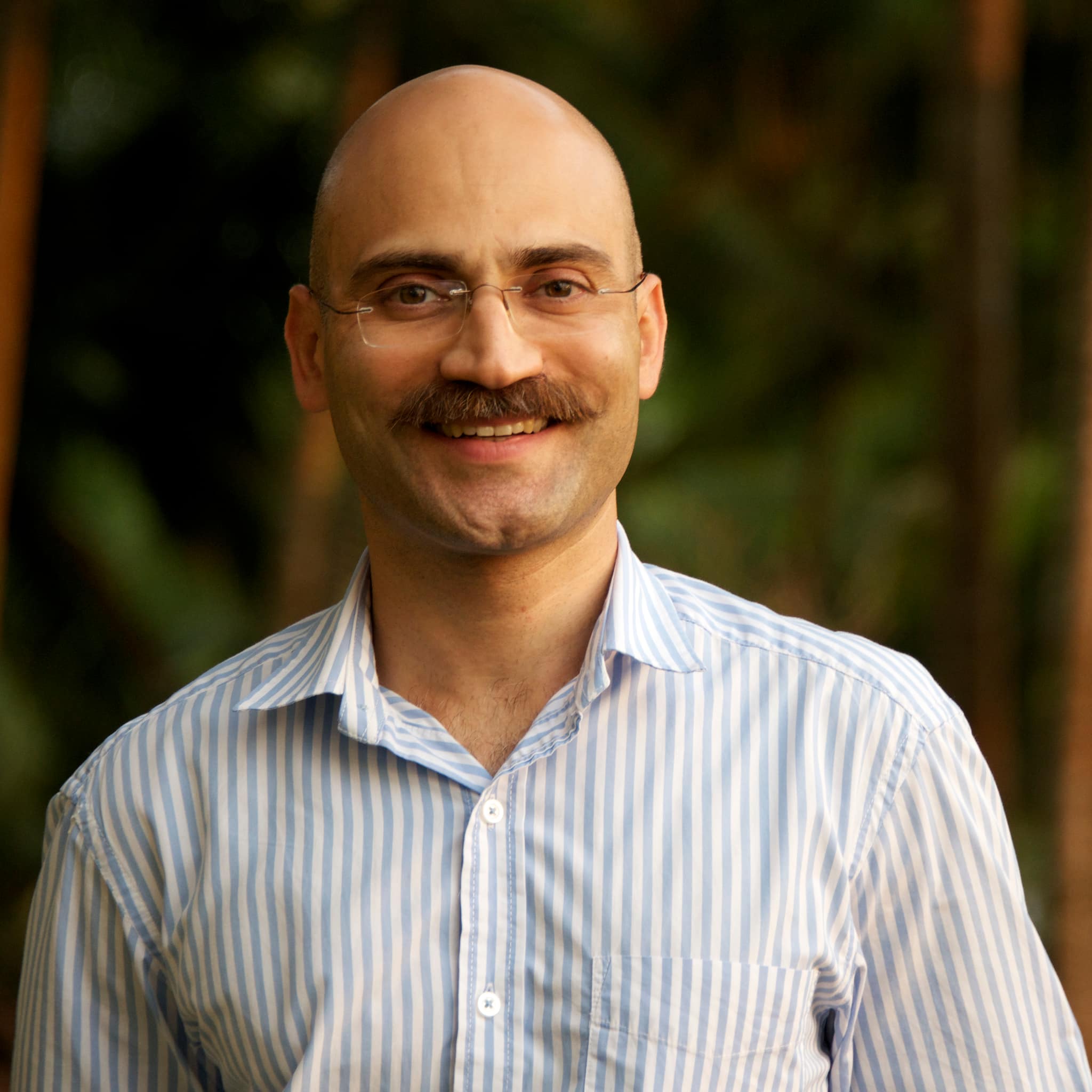 Manu Rishi Guptha, CEO of Niraamaya Retreats
Manu Rishi Guptha, CEO of Niraamaya Retreats
Longer holidays will become a norm: From a leisure travel perspective, the single-most-important change we are seeing across our chain of hotels is the length of stay, which has seen a dramatic uptick. For a leisure holiday, the average stay used to be 3.5 nights. We have seen an uptick of over 2 nights across our properties, as people discover more time for themselves.
The move away from excess and indulgence: Travellers are looking for a tangible takeaway because of extreme change in lifestyle and habits. Once, a holiday would mean indulgence and excess of eating and drinking. The newer form of the holiday means less of indulgence and more of finding balance and satisfaction, a definite enhancement of mental and physical health during the course the holiday.
The focus is on wellness: The sense of luxury is relative and depends on the economic situation of individuals. A common thread could be space because space is tangible. A space that affords a visually appealing sight then is luxurious. It is likely to a sharp focus on mental and physical wellness.
The pandemic has changed the variables that we appreciate. Being able to consider yourself comfortable, of spending time with your family at your terms, enjoying good health, enjoying the subtle things in life which money cannot buy — all this is luxury. If your sources of income are not dramatically disrupted that itself is luxury.
Emergence of quiet, private vacations: The fundamental concept of space and design for our industry has changed. Travellers will prefer to not holiday in very large and opulent hotels or ships. They would, instead, appreciate holidays that are private and offer the luxury of space in the lap of nature. Instead of staying in large hotels, they would want to head out to a tent in Oman which offers a sense of space and privacy, primarily because they do not want to see too many people around them anymore.
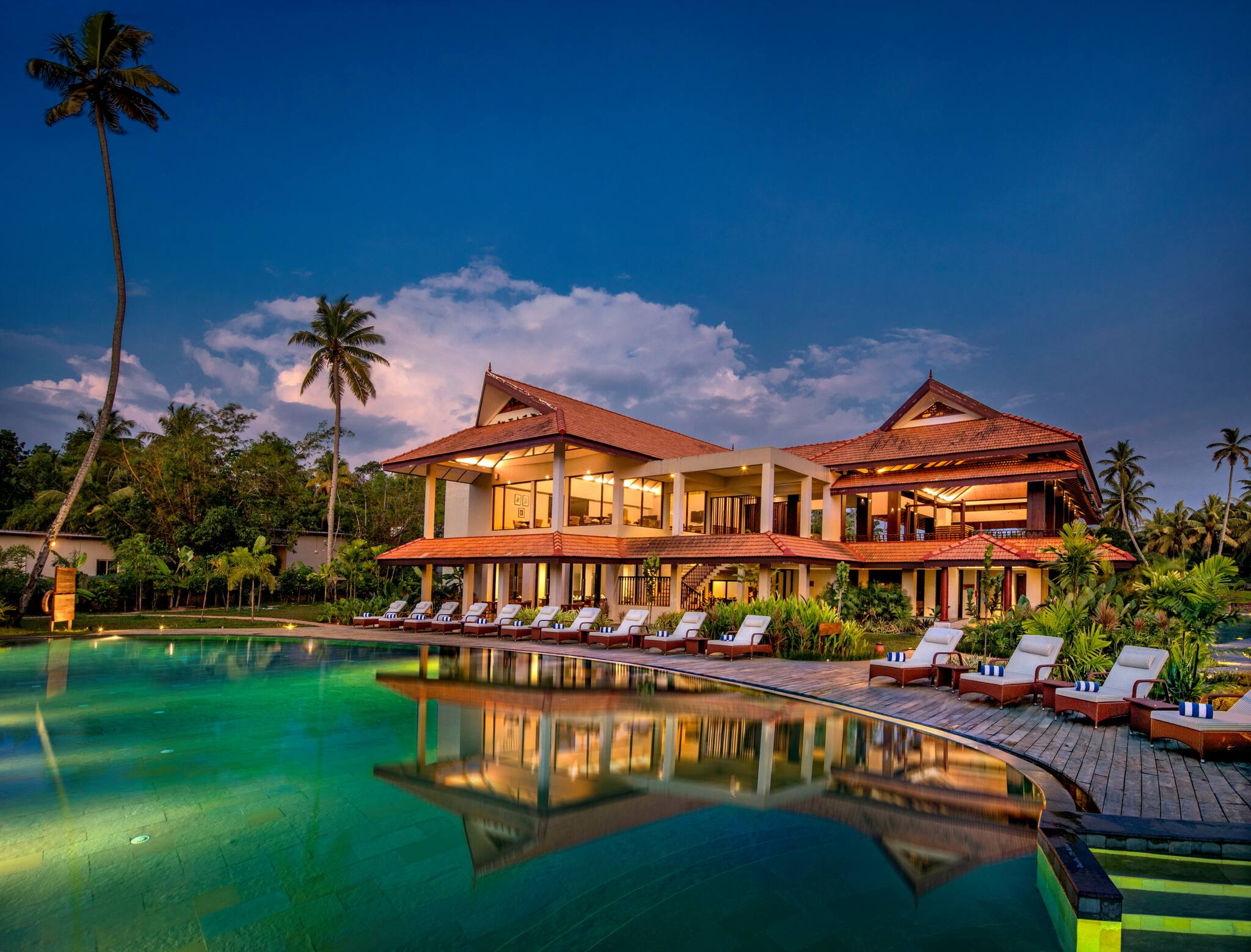 Niraamaya Retreats Backwaters and Beyond, Kumarakom - Swimming Pool View
Niraamaya Retreats Backwaters and Beyond, Kumarakom - Swimming Pool View
A luxury consumer no longer wants to be pampered with lots of manpower or over-the-top service. Instead, in an After Corona world, he or she may want to be pampered with invisibility and service that is perfected as fine art, without being obtrusively present in the face.
Tanveer Kwatra, General Manager, W GoaLifestyle luxury over classic luxury: There’s a traditional luxury that quintessentially covers higher-priced, superior quality, classic luxury goods and services. Then there is lifestyle luxury. That’s where W is different from any other luxury brand. How the brand interacts and engages with the audience is so far away from classical luxury. Luxury, in then new era, is all about creating distinctive, out-of-the-ordinary experiences by appealing to people’s emotional desires.
The emergence of local travel: Due to restrictions, there has been a growth in the number of tourists travelling within the country, especially to regions that are easily accessible by car. Currently, we are seeing a lot of road trippers coming to W Goa from cities such as Bangalore, Mumbai, Pune and Hyderabad. HNIs are increasingly exploring Indian luxury destinations, which in turn will result in a growing demand for higher category rooms.
The global pandemic has forced each one of us to stop and reflect on what matters. As travel recommences, we see a trend of luxury travellers prioritizing experiences that will last with them for a long time after their trip. Travellers are expected to be taking fewer annual trips in a post-COVID world, therefore it is all the more important that each trip is filled with enriching experiences.
Discover the latest Business News, Sensex, and Nifty updates. Obtain Personal Finance insights, tax queries, and expert opinions on Moneycontrol or download the Moneycontrol App to stay updated!
Find the best of Al News in one place, specially curated for you every weekend.
Stay on top of the latest tech trends and biggest startup news.